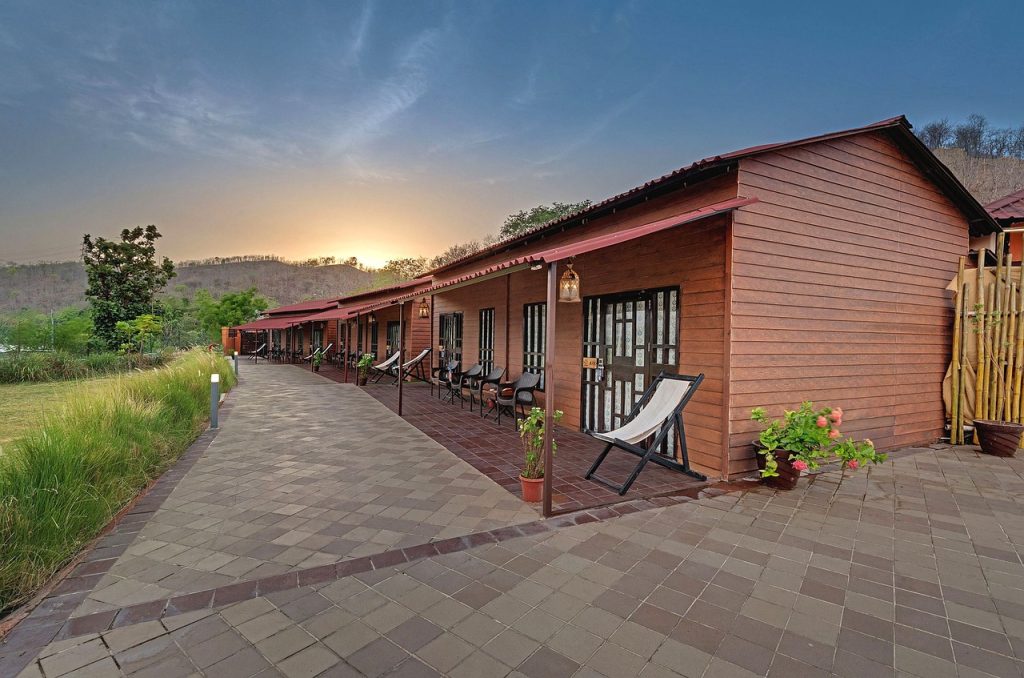Table of Contents
Friendly accommodations are a crucial aspect of any successful trip. For eco-conscious travelers, the choice of accommodations plays a crucial role in reducing environmental impact. Roadside accommodations that prioritize sustainability and eco-friendliness are becoming increasingly popular. In this comprehensive guide, we will explore eco-friendly roadside accommodations, their benefits, features, popular destinations, and tips for choosing the most sustainable options to ensure a greener and more responsible travel experience.
The Rise of Eco-Friendly Accommodations

The travel industry is recognizing the importance of sustainable practices, and this extends to roadside accommodations. Eco-friendly lodgings are designed to minimize their impact on the environment while providing guests with a comfortable and responsible place to stay. Here are some key reasons why green travelers are choosing eco-friendly roadside accommodations:
1. Environmental Conservation:
Eco-friendly accommodations implement practices that reduce energy consumption, water usage, and waste generation, contributing to environmental conservation.
2. Supporting Sustainable Tourism:
By choosing eco-friendly lodgings, travelers support the growth of sustainable tourism and encourage other establishments to adopt eco-conscious practices.
3. Health and Well-being:
Sustainable accommodations often prioritize natural materials and non-toxic cleaning products, creating healthier and more comfortable environments for guests.
4. Local Engagement:
Many eco-friendly accommodations engage with local communities, promote cultural preservation, and support local economies.
5. Personal Values:
Green travelers prioritize their personal values and environmental responsibility when selecting accommodations, aligning their choices with their eco-conscious lifestyle.
Characteristics of Eco-Friendly Accommodations

What sets eco-friendly roadside accommodations apart from conventional ones? Here are some defining characteristics:
1. Energy Efficiency:
Sustainable lodgings use energy-efficient lighting, appliances, and heating/cooling systems to minimize energy consumption.
2. Water Conservation:
Eco-friendly roadside accommodations employ water-saving fixtures and practices to reduce water usage and promote responsible water management.
3. Waste Reduction:
They implement recycling programs, reduce single-use plastics, and focus on waste reduction and responsible disposal.
4. Sustainable Materials:
Many eco-friendly accommodations use sustainable and locally sourced materials in construction and furnishings.
5. Renewable Energy:
Some lodgings harness renewable energy sources like solar panels or wind turbines to power their operations.
6. Certifications:
Eco-friendly roadside accommodations often seek certifications like LEED (Leadership in Energy and Environmental Design) or Green Key to demonstrate their commitment to sustainability.
Benefits of Choosing Eco-Friendly Accommodations

The benefits of staying in eco-friendly roadside accommodations are numerous:
1. Reduced Environmental Impact:
By choosing green lodgings, travelers help reduce carbon emissions, water waste, and other environmental harms associated with travel.
2. Healthier Living Spaces:
Eco-friendly accommodations often prioritize natural materials and non-toxic cleaning products, creating healthier and more comfortable environments for guests.
3. Supporting Sustainable Practices:
Supporting eco-friendly accommodations encourages the adoption of sustainable practices within the travel industry.
4. Connecting with Nature:
Many eco-friendly accommodations are located in beautiful natural settings, allowing guests to connect with nature and enjoy serene surroundings.
5. Personal Fulfillment:
Staying in eco-friendly accommodations aligns with the values and principles of green travelers, offering personal fulfillment and satisfaction.
Popular Destinations for Eco-Friendly Roadside Accommodations
Eco-conscious travelers can find sustainable lodgings in various locations. Here are some popular destinations known for their eco-friendly roadside accommodations:
| Destination | Notable Eco-Friendly Accommodations |
| Asheville, North Carolina | The OM Sanctuary, Shoji Spa & Lodge, and The Farm at Mills River are eco-friendly options amidst the Blue Ridge Mountains. |
| Sedona, Arizona | El Portal Sedona, Sedona Real Inn, and Briar Patch Inn offer sustainable accommodations amidst Sedona’s red rock landscapes. |
| Big Sur, California | Ventana Big Sur, Treebones Resort, and Big Sur River Inn provide eco-conscious lodging along the rugged California coastline. |
| Portland, Oregon | The Jupiter Hotel, The Nines, and McMenamins Kennedy School offer sustainable stays in the heart of Portland. |
| Boulder, Colorado | The Boulder Adventure Lodge, St. Julien Hotel & Spa, and Basecamp Boulder embrace eco-friendliness in the Rocky Mountains. |
Tips for Choosing Eco-Friendly Accommodations

When selecting eco-friendly roadside accommodations, consider the following tips:
- Research Green Certifications: Look for accommodations with recognized green certifications like LEED or Green Key, as these demonstrate a commitment to sustainability.
- Read Reviews: Check guest reviews and feedback to gauge the environmental practices and commitment of the lodging.
- Inquire About Sustainability Initiatives: Contact the accommodation directly to ask about their specific sustainability initiatives, such as energy-saving measures and waste reduction programs.
- Check for Eco-Friendly Amenities: Look for accommodations that offer eco-friendly amenities such as reusable toiletry containers, refillable water stations, and bike rentals.
Conclusion
Choosing eco-friendly roadside accommodations allows travelers to reduce their environmental impact while enjoying comfortable and responsible lodging. Whether you’re on a road trip or seeking a sustainable retreat, these accommodations offer a greener and more fulfilling travel experience.
Frequently Asked Questions (FAQ)
1. Are eco-friendly accommodations typically more expensive than conventional ones?
Eco-friendly accommodations may have slightly higher upfront costs due to their sustainability investments. However, guests often find that the benefits, such as energy savings and healthier environments, justify the expense.
2. How can I verify if an accommodation is truly eco-friendly?
Look for recognized green certifications, inquire about specific sustainability practices, and read guest reviews to gain insights into an accommodation’s eco-friendliness.
3. Do eco-friendly accommodations have the same level of comfort and amenities as conventional ones?
Many eco-friendly accommodations offer comparable comfort and amenities, including comfortable beds, private bathrooms, and various conveniences. Some even prioritize guest comfort and well-being more extensively.
4. Are eco-friendly accommodations suitable for families with children?
Eco-friendly accommodations can be suitable for families with children, but it’s essential to check if they provide family-friendly amenities and facilities.
5. Can I expect eco-friendly accommodations to be located in natural settings?
Many eco-friendly lodgings are located in beautiful natural settings, offering guests the opportunity to connect with nature and enjoy serene surroundings. However, some can also be found in urban areas.

